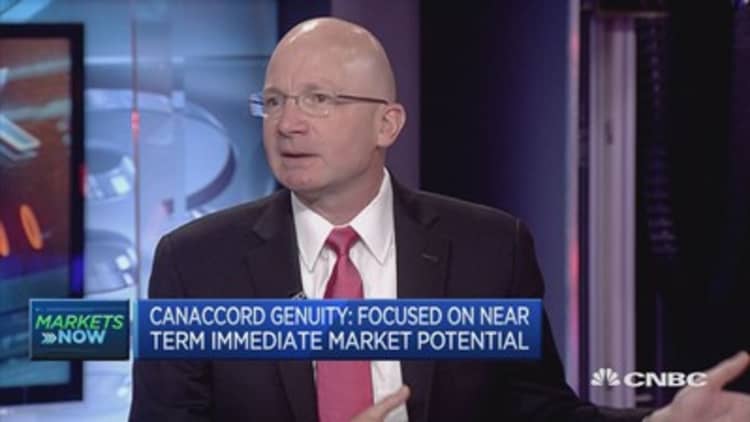
"The only thing the U.S. market correlates to is the direction of earnings. Full stop," Canaccord Genuity's chief market strategist, Tony Dwyer, told CNBC Thursday. And, with that, the floodgates to debate were reopened on the on-going search for returns.
Dwyer came to loggerheads with the chief investment officer of Plurimi Investment Managers after claiming that earnings ratios, more than any other method of stock valuation, are the key way of identifying investment opportunities in the current economic environment.
"Valuation is never, ever, ever a good reason to buy or sell over a near-term time frame," Dwyer said, irking his strategically opposed counterpart, Patrick Armstrong, on Thursday's SquawkBox.
It is not the first time investors have come to a head over investment strategy. After all, if there were one sure-fire approach, we'd all rush in and there'd be little gains to be had. However, new fuel was added to the fire Wednesday after the Federal Reserve released a hawkish forecast on U.S. economic growth, indicating that an interest rate hike could be on the cards for June.
For Dywer, equity valuation – the act of assessing the value of a firm or security – should be based on price to earnings (P/E) ratios, which is perhaps one of the most commonly used methods.
The U.S. economy is improving, said Dwyer, positing growth at 2.5 to 3 percent, and this is boosting P/E ratios to an average of 19, with room to grow.
"The only thing the U.S. market correlates to is the direction of earnings," he noted.
"At 19 times earnings, which is the average multiple when inflation is at 1 and 3 percent in the U.S., that's just market fact … it could go to 22, 23."
This could be boosted further by the Trump administration's proposed tax cuts, he said.
However, Armstrong insisted that such growth would be short-lived and, in the long-term, valuation is the "only thing that matters."
"Guess what, maybe it (P/E) goes to something normal like 15, and then all of a sudden your case doesn't work so well," said Armstrong.
"The normal market multiple is 15 to 17, we're in a time where we've got 2 percent economic growth. If you get to 3 (percent) then all of a sudden the multiples start to make a little bit of sense. At 2.5 they don't."
Armstrong insisted that sudden gains in earnings would be offset by a rise in interest rates by the Federal Reserve.
"You've got counterbalances right now. If things go great the Fed is going to hike. That's your counterbalance."
The Fed held interest rates steady when it met Wednesday. However, despite acknowledging only modest spending activity in the first quarter, it said it believes the weakness will not last.
It is widely expected that the Fed will hike rates a further two times this year after doing so by 25 basis points in March.
Follow CNBC International on Twitter and Facebook.


